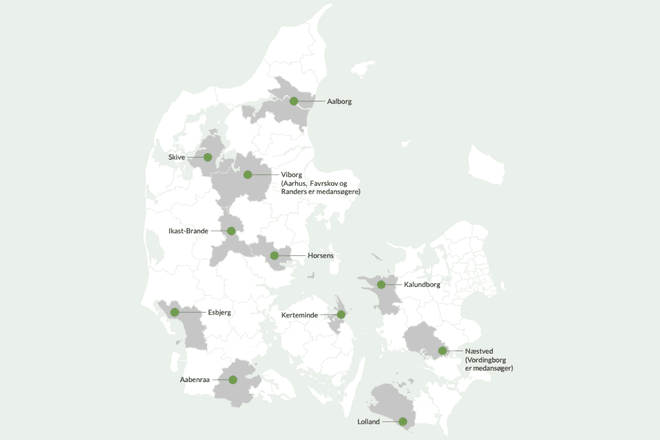Two out of three Danish companies have little or no confidence that the police and authorities can investigate and prosecute cybercriminals effectively. This is shown by a new study from DI Digital and KPMG, which points to the need for strengthened efforts both in business and among the authorities. DI Digital states this in a statement.
According to the study, only one in three companies would contact the police today in the event of a cyberattack. This is due, among other things, to the cross-border nature of the threat and the companies' experience of a lack of response after reports.
- The figures should ring alarm bells. We are facing a form of crime that is notoriously difficult to investigate because the perpetrators often do not leave many traces and operate globally. We will never reach 100 percent. clearance rate, but we must insist that it will be less risk-free to commit cybercrime in the future, says Andreas Holbak Espersen, industry director at DI Digital.
The study also shows that phishing and ransomware pose the greatest threats to Danish companies. New technologies such as artificial intelligence and quantum computers further increase the risk.
Danish efforts should be reconsidered
KPMG's partner in Digital Risk, Martin Povelsen, points out that Denmark must rethink its efforts against cybercrime and make greater use of new technologies to strengthen preparedness.
- We need to rethink our efforts against cybercrime based on the types of crime that hit companies the hardest. This requires a systematic review of whether we have the right protection and legislative framework to effectively combat cybercriminals. At the same time, we must make much greater use of technologies and methods that give us new and stronger tools in the fight against cybercrime, he says.
At the same time, the survey shows that less than half of the companies (43 percent) have a contingency plan, and only 12 percent have practiced handling cyberattacks. Small and medium-sized enterprises in particular are vulnerable due to limited resources.
Based on the study, DI and KPMG present six policy recommendations, including strengthened public-private cooperation, a national platform for threat information, investments in technological innovation and a faster transition to post-quantum encryption.
amp
Six policy recommendations for strengthened efforts against cybercrime from DI and KPMG
- Rethink cyber efforts from the ground up
Establish a public-private initiative that systematically reviews the most harmful cyber threats targeting business and ensures that resources, legislation and responsibility match the seriousness of the threats. - Strengthen the sharing of threat information
Create a confidential and operational national platform where authorities, companies and suppliers can share information about cyber threats and incidents, especially within critical infrastructure. - Invest in technological innovation
Prioritize research and development in new technologies with a focus on AI-supported cybersecurity, so that Denmark can detect and prevent cyber threats more effectively. - Accelerate the shift to post-quantum encryption
Future-proof the protection of vital data and systems by supporting the implementation of new encryption solutions, especially for SMEs in critical sectors. - Create more cyber skills and strengthen preparedness
Spread awareness of basic cybersecurity among the population, expand training capacity and create a national preparedness system with experts that can be activated quickly in the event of a major attack. - Protect infrastructure with network filtering
Build a robust digital infrastructure with increased use of DNS protection and network segmentation, and ensure that vendors build security into solutions targeting SMEs.
Text, graphics, images, sound, and other content on this website are protected under copyright law. DK Medier reserves all rights to the content, including the right to exploit the content for the purpose of text and data mining, cf. Section 11b of the Copyright Act and Article 4 of the DSM Directive.
Customers with IP agreements/major customer agreements may only share Danish Offshore Industry articles internally for the purpose of handling specific cases. Sharing in connection with specific cases refers to journaling, archiving, or similar uses.
Customers with a personal subscription/login may not share Danish Offshore Industry articles with individuals who do not themselves have a personal subscription to Danish Offshore Industry.
Any deviation from the above requires written consent from DK Medier.
























